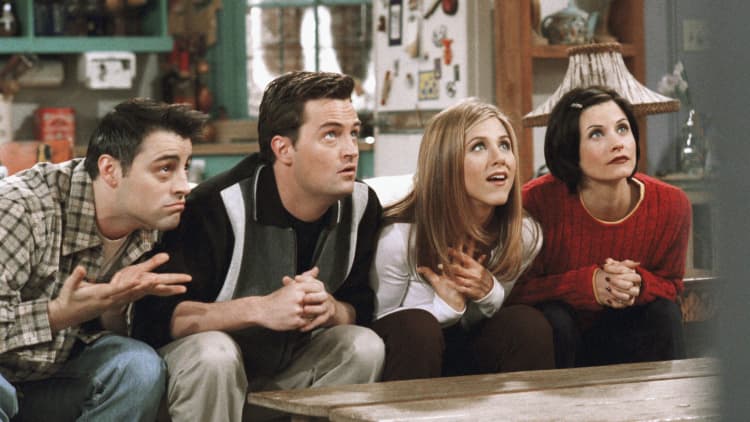When it comes to feeling burnout because of work, not even some of the most influential people like media mogul Arianna Huffington, former presidential candidate Hillary Clinton, singer Lady Gaga, or television producer Shonda Rhimes can escape it.
Self-help and happiness expert Gretchen Rubin tells CNBC Make It that your susceptibility to feeling burnout may actually have a lot to do with your personality type.
In "The Four Tendencies," her latest New York Times bestseller, Rubin establishes a new personality framework that splits everyone into one of the following for personality types, based on how you respond to expectations (you can also take this online quiz to assess your tendency):
- Upholders: You readily meet both outer expectations and inner expectations. You meet your work deadlines and you keep your New Year's resolutions without much fuss. You prioritize what others expect from you and your expectations for yourself because both are equally important to you.
- Questioners: You question all expectations because you don't like doing anything arbitrary, inefficient or irrational. You will meet outer expectations only if you think it makes sense and as a result, turn everything into an inner expectation.
- Obligers: You respond readily to outer expectations but struggle to meet your own inner expectations.You work well when held accountable by others, but you find it difficult to accomplish your expectations for yourself.
- Rebels: You resist all expectations, outer and inner alike. You do only what you want to do, in your own way and in your own time. If someone asks or tells you to do something, you're very likely to resist.
Those who are least likely to feel burnout are rebels, Rubin says, because they "just do what they want to do."
"That insulates them from burnout to a very great degree because they just won't do something if they don't want to and they feel a lot less pressure about expectations than the other three tendencies do," Rubin says, noting that rebels have other challenges they need to deal with such as their need to not feel confined by others.
Rubin says that many people assume upholders would feel the most burnout because of their need to meet both inner and outer expectations, but that's not the case. Their ability to balance both sets of expectations is exactly what allows them to skirt past burnout.
"An upholder can tell their boss, "I know you'd like everybody to stay a little bit late, but I'm sorry I've got to get home and go for a run' or 'I've decided that I'm not going to answer e-mail over the weekend,'" Rubin says.
Next, questioners' incessant need to question everything makes them the next least susceptible to experiencing burnout. Rubin says they're very good at avoiding it because, at a certain point, they will let their boss or coworkers know if they are reaching a breaking point.
"Questioners certainly will resist anything that they think is inefficient or a waste of their time," Rubin says. "They often are very good at articulating why they think something is becoming too much of a burden or there is too much expected of them."
The people who tend to face the most problems with burnout are obligers.
"They feel very heavily the weight of outer expectations, but they don't have the weight of inner expectations to allow them to push back," Rubin explains, adding that many obligers also happen to be people pleasers.
One sign that an obliger is feeling burnout, Rubin notes, is "when they talk about their need to put themselves first."
"When they start articulating this feeling, that's because the weight of outer expectations has become too heavy," Rubin says.
For obligers who have a habit of always putting other people's needs first and want to take better care of themselves, Rubin recommends finding methods of outer accountability. One quick and easy way to do that is to imagine the effect this decision will have on your future self.
Rubin uses an example of a moment when she can personally reject someone else's outer expectations by thinking of her future self: "If I look at my future self and say, 'Well right now Gretchen feels a lot of pressure to say yes to her boss, but future Gretchen is going to be really disappointed that I didn't stand up for myself, so I have to say no now because I don't want to let down future Gretchen.'"
Another way for an obliger to avoid burnout is to think in terms of tradeoffs.
"If you say yes to one person, remember that means you'll have to say no to someone else," Rubin warns.
Here's an example of how an obliger should think instead:
"Well, my team would really like me to stay late and work. but I had this long conversation with my family about how we were all going to be home for dinner. If I say yes to the team, I have to say no to my family."
The key for obligers, Rubin says, is to "say yes to less."
Like this story? Like CNBC Make It on Facebook.
Don't miss:



